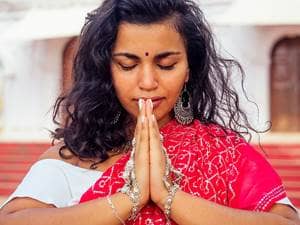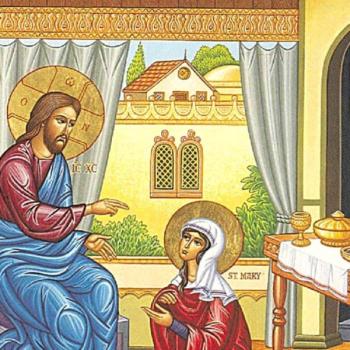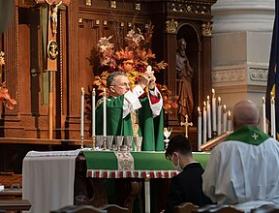
Hindu prayer is a common feature of devout Hindu life. Many Hindu families will have altars in their homes, or a room set aside with an altar, and might offer morning and evening prayers there. While different days of the week are dedicated to different deities, there is no one day where it is expected for a Hindu to worship at the Temple, instead of at their home altar. Hindu prayer will depend on the cultural influences of the place where the person lives, and the denomination of Hinduism that the person practices. There is a lot of variation within Hindu practice. Typically, however, Hindus will offer prayers to a host of personal deities, as well as divine beings, and it is common to do so once a day. Hindu worship is more of an individual act than a communal one, in most cases, and involves personal offerings and prayers to the deities, often at the altar in one own’s home. It is common for homes to have a daily ritual offering for their deities. More elaborate rituals might occur at home on special occasions, or before someone embarks on an important trip or a new task.
Prayer can be the form of a supplication, but traditionally includes the repletion of the names of the divine beings, such as the gods or goddesses, or the repetition of a mantra. Hindu prayer is also physical, and might include bowing or kneeling. Another form of worship is through the leaving of offerings at the altar, which can include fruit, tokens, flowers and incense. Hindu altars often include images or other symbols, as a way of accessing the gods, and providing a focal point for one’s worship.
The ritual act of worship is known as puja, the ceremony which marks paying reverence to a deity. A puja can take place at home, or in a temple. Hindu temples are beautiful, open, often colorful buildings which typically house religious artifacts and are open spaces for Hindu worship and prayer. The puja rituals in the Temple are decidedly more elaborate than those held at home, and often include a procession, and the dressing, adoration, and otherwise serviced murti, or image of deity which stands in for the God and is meant to help focus the person’s attention. There are usually perfumes, incense, flowers, and offerings of food. Hindu prayers are often centered on the specific deity who is the focus of the worship ritual, and many Hindus have a personal or special deity for their household, or to whom they have a special connection.
There are thousands of rituals and prayers in Hinduism, which considered by many to be the world’s oldest religion. Many of the rituals of Hinduism are over 4,000 years old, with special meaning for the more than 900 million followers of Hinduism today. The majority of Hindus live in India, which is where so many of the prayer and worship rituals of Hinduism developed. Hindu rituals are unique because Hinduism as a tradition developed alongside the long history of so many different cultures and beliefs, as opposed to being founded by a single individual or in a single moment in time. As a result, Hinduism is less a single, uniform belief system and more a collection of many different ways of living, all rooted and developed in reference to a similar set of texts and ideas, but not bound to any one text or idea. Hindu prayer reflects this diverse set of origins.
For more on Hindu prayer, check out here.
1/17/2023 7:58:13 PM










